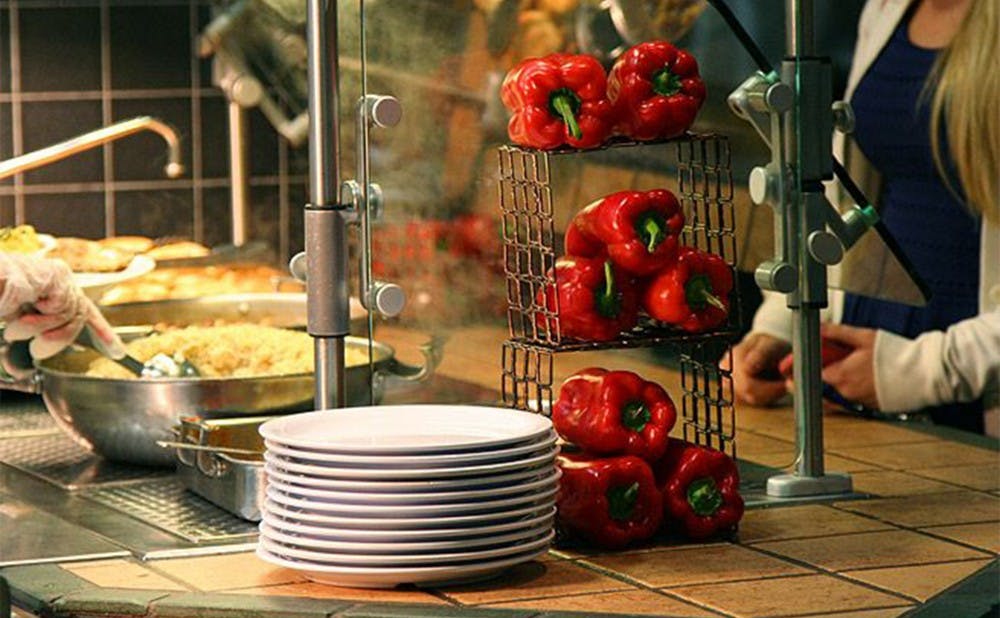Frequent customers of Marketplace or Penn Pavilion may not realize that some of the food they are eating was grown by Duke students just a few miles away.
Five years ago, a class project in ENV 171: Food and Energy—taught by Charlotte Clark, assistant professor of the practice in sustainability education—inspired a small group of students to create the Duke Campus Farm. The farm is located on a 12-acre parcel of land in the Duke Forest that had previously gone decades without being used. Aiming to provide fresh, local and sustainable food to campus eateries as well as educate students about sustainable farming, the DCF has grown both in size and in community participation.
“We definitely have ramped up our production for Duke Dining quite a bit,” said Saskia Cornes, DCF program coordinator. “We have had more visitors than ever before. We topped a thousand people this year.”
DCF supplies a substantial amount of fresh produce for Duke Dining, much of which is used at Marketplace and Penn Pavilion, Cornes said. According to the farm’s 2014 Annual Report, they sold $6,760 worth of produce during the summer and delivered 30 pounds or more of kale and arugula to Duke Dining each week.
In terms of educating students about sustainable farming, Cornes said the farm has been extremely successful, noting the continued increase in the number of students visiting the farm each year.
“It is a great way to connect to people who have not had the opportunity to work in agriculture, and to have them learn more about agriculture,” noted sophomore Sara Snyder, a student intern at the farm.
In addition to everyday volunteers, DCF also gets volunteers by partnering with student organizations—such as the pre-orientation program Project BUILD—and several classes and their professors. In Spring 2016, the farm will work with a class titled The Environment and Law: Literature and Science, taught in part by Cornes.
“The farm serves as a venue for academics to come and discuss [food] issues, and have it actually be experiential learning,“ said Claire Fox, a master’s candidate at the Nicholas School of the Environment and associate farm manager at DCF. “It’s more than just an outdoor classroom.”
Staff at DCF believe the farm has been successful at meeting its stated goals, and the farm has recently published a new strategic plan highlighting its continuing goals to “educate, engage, empower, energize and enable” the campus—at least in terms of sustainable agriculture.
“It feels amazing that I have been able to grow this food, and then see it go onto people’s plates,” said Snyder. “It’s a feeling of pride.”
The Chronicle spoke with Cornes by phone and via email.
Get The Chronicle straight to your inbox
Signup for our weekly newsletter. Cancel at any time.

